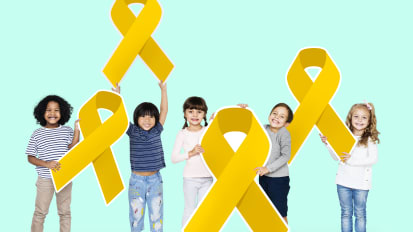Search Videos and More
 Video
Video
High-Tech Living With Diabetes: Devices and Strategies for Pediatric Patients
Pediatric endocrinologist Gina Capodanno, MD, explains differences in diabetes between children and adults, then presents a thorough guide to the technologies – continuous glucose monitors, insulin pumps, and hybrid monitor-and-delivery systems – that are making life easier for families. Video
Video
Fetal Care: Understanding and Managing Risks for Monochorionic Twins
UCSF experts share their approach to evaluating twins in utero, focused on ultrasound detection of those who share a placenta while developing in separate amniotic spaces. Radiologist Vickie A. Feldstein, MD, and perinatologist Nasim Sobhani, MD, provide anatomical keys to anticipating complications, such as twin-to-twin transfusion syndrome. Video
Video
Better Lives for Kids With Cerebral Palsy: Understanding Surgical Options
Knowing if and when to refer a child with CP for surgery can prevent serious problems, such as hip dislocation and pain, as well as improve the whole family’s quality of life. Video
Video
Meet the Pediatric Liver Center’s Dedicated Team and Learn About Referral
This quick video introduces members of the UCSF care team for infants and children with liver and bile duct disorders. Learn how they work to make treatment easier on families, prepare kids for surgery (including transplants), facilitate the referral process and keep providers informed. Video
Video
Snares of Survivorship: Understanding Late Effects of Childhood Cancer Treatment
Oncology treatments save young lives but impact neurocognitive development and psychosocial health, potentially causing problems such as IQ, memory, and hearing deficits, as well as depression, anxiety and social difficulties. Video
Video
Care for the Smallest Spines: A Guide to Pediatric Scoliosis and Kyphosis
Children with spinal deformities benefit from early detection and appropriate treatment, whether that means monitoring, bracing or surgery. Pediatric orthopedic surgeon Ishaan Swarup, MD, breaks down the two most common conditions and explains key tools. Video
Video
Cutting-Edge Epilepsy Surgery With Less Cutting: New Techniques Are Changing Kids’ Lives
Pediatric neurosurgeon Kurtis Auguste, MD, who directs the UCSF Pediatric Epilepsy Surgery Program, discusses in-use options that boost accuracy and safety for managing seizures. Video
Video
COVID-19 Vaccination in the Pediatric Population: Help With Talking to Worried Parents
Pediatric infectious disease specialist Prachi Singh, DO, presents the evidence on COVID-19 illness and vaccines for children and adolescents, illuminating the current state of the changeable COVID landscape. Video
Video
Protecting Children’s Mental Health: Ready Resources for PCPs
Mental health issues are common in pediatric patients, with rates rising during COVID, yet modern time constraints make it challenging for primary care providers to meet these needs. Fortunately, child psychiatry access programs are designed to be an efficient way to consult with experts, who can give tailored, practical guidance in minutes. Video
Video
When a Child’s Cancer Resists Treatment: The Potential of Immunotherapy
This encouraging presentation from pediatric hematologist-oncologist Michelle Hermiston, MD, PhD, director of UCSF’s pediatric immunotherapy program, focuses on relapsed acute lymphoblastic leukemia, the most common childhood cancer. Video
Video
Sensitive and Smart Sexual Health Care: Meeting the Needs of Adolescents Now
Adolescent medicine specialist Javay Ross, MD, discusses key questions and how to ask them; offers time-saving tips on taking histories, screening appropriately and prescribing wisely; and explains how to guide patients to their best birth control options. Video
Video
Cancer Syndromes in Children: An Expert on Screening and Surveillance
Genetic testing and early intervention can have benefits ranging from preserving vision – as in the case of retinoblastoma – to preserving lives. Jennifer Michlitsch, MD, discusses how to identify patients at risk, take informative family histories, and ensure care reflects the needs and values of individual families.

